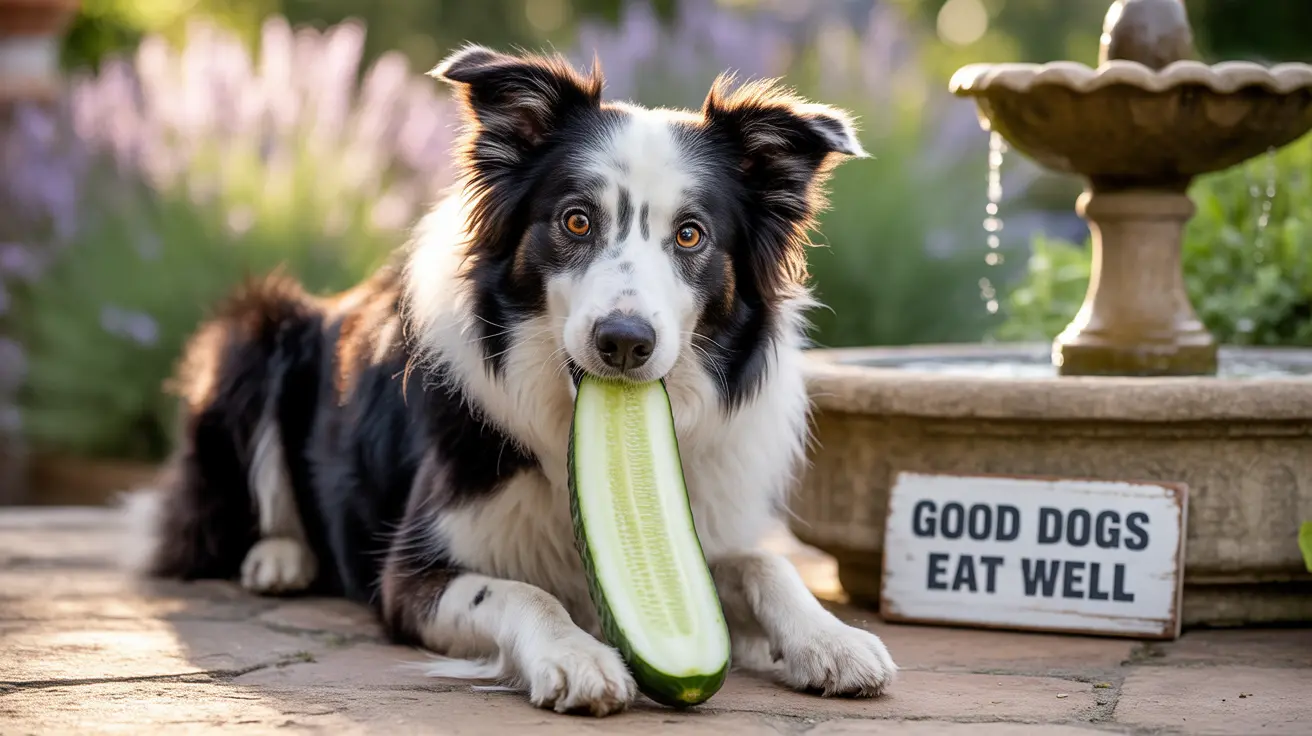Many pet owners wonder if it's safe to share cucumber with their furry friends. The good news is that cucumber is not only safe for dogs but can also be a nutritious and refreshing treat. This comprehensive guide will explore everything you need to know about feeding cucumber to your canine companion, from its health benefits to proper serving methods.
As a low-calorie snack composed of 96% water, cucumbers offer a hydrating alternative to traditional dog treats. They're particularly beneficial during warm weather or after exercise when your dog needs extra hydration.
Are Cucumbers Bad for Dogs? Understanding the Safety Profile
Contrary to concerns, cucumbers are perfectly safe for dogs when served properly. These crisp vegetables are non-toxic and can be a healthy addition to your dog's diet. However, there are some important considerations to keep in mind:
- Fresh cucumbers are best; avoid pickled varieties
- Wash thoroughly to remove pesticides
- Cut into appropriate sizes to prevent choking
- Introduce gradually to prevent digestive upset
Nutritional Benefits for Your Dog
Cucumbers pack several essential nutrients that can benefit your dog's health:
- Vitamin K for bone health and blood clotting
- B-complex vitamins for energy metabolism
- Vitamin C for immune system support
- Potassium and magnesium for muscle function
- Calcium (16mg per 100g) for strong bones
- Iron (0.28mg per 100g) for healthy blood
How to Serve Cucumber to Your Dog
Proper preparation is key to making cucumber a safe and enjoyable treat for your dog:
Preparation Steps:
- Wash thoroughly under running water
- Remove the skin (especially for sensitive dogs)
- Cut into appropriate-sized pieces based on your dog's size
- Consider removing seeds for easier digestion
Serving Suggestions:
- As a standalone treat
- Mixed with regular dog food
- Frozen for hot days
- Added to water for enhanced hydration
Smart Feeding Guidelines
While cucumbers are healthy, moderation is essential:
- Limit treats to 10% of daily caloric intake
- Start with small amounts to test tolerance
- Monitor for any digestive changes
- Consult your veterinarian before adding to your dog's diet
Frequently Asked Questions
Can dogs eat cucumbers safely, and what are the benefits for their health?
Yes, dogs can safely eat cucumbers. They're low in calories, high in water content, and provide essential vitamins and minerals. Benefits include improved hydration, weight management support, and dental health benefits from crunching.
How do I prepare cucumbers for my dog to eat, and what precautions should I take?
Wash cucumbers thoroughly, remove the skin if desired, and cut into appropriately sized pieces to prevent choking. Avoid pickled cucumbers and introduce fresh cucumber gradually to monitor for any digestive reactions.
Are cucumber seeds safe for dogs to eat, or should they be removed?
While cucumber seeds are non-toxic, they may be difficult for some dogs to digest. For dogs with sensitive stomachs or puppies, it's best to remove the seeds to prevent potential digestive upset.
Can cucumbers help with my dog's hydration, especially during hot weather?
Yes, with 96% water content, cucumbers are excellent for hydration, especially during hot weather or after exercise. They can be served fresh or frozen for an extra cooling effect.
How often can I give cucumbers to my dog as a treat, and what are the risks of overfeeding?
Cucumbers should be given as occasional treats, not exceeding 10% of your dog's daily caloric intake. Overfeeding can lead to digestive issues like diarrhea or stomach upset. Start with small amounts and observe your dog's reaction.
Remember that while cucumbers make an excellent healthy treat, they should complement, not replace, your dog's regular balanced diet. Always monitor your pet when introducing any new food and consult with your veterinarian if you have specific concerns about your dog's diet.






